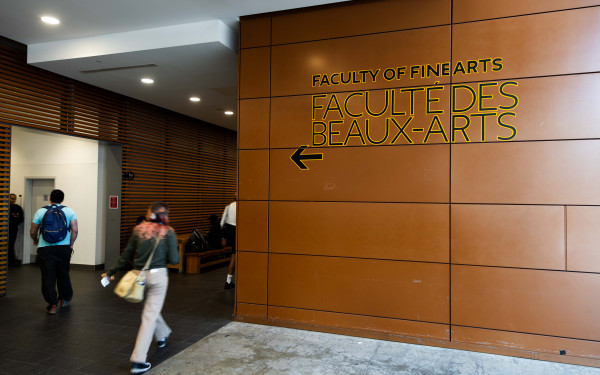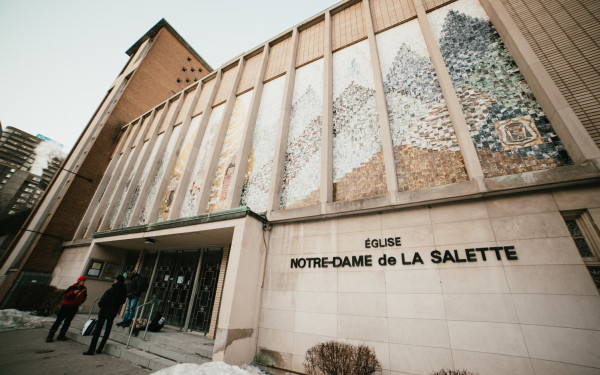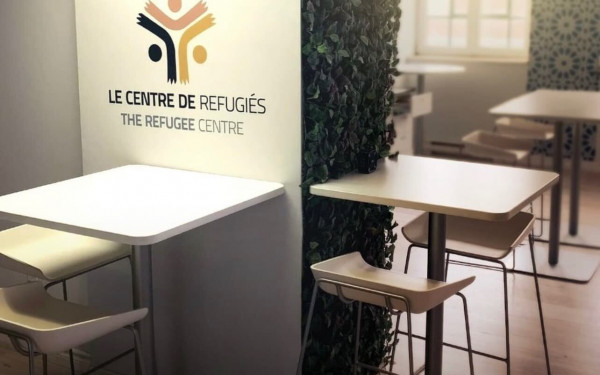The war from the perspective of Ukrainian and Russian students abroad
The perspectives of Concordia’s Ukrainian and Russian students and a closer look into the refugee initiatives, donations, and resources available. Photo Olivia Integlia
A closer look into the refugee initiatives, donations, and resources created by Concordia students
Russia began an armed invasion of Ukraine. In a little over a week, Russian forces had bombarded major Ukrainian cities including Kherson, Khar, Kyiv, Melitopol, Chernihiv, and Mariupol.
For some, a war of this extent was unimaginable. “I think that nobody ever expects war, especially in this day and age,” said Vitalia Khmil, a Ukrainian-Canadian Concordia music student. “It was a shock to all of us.”
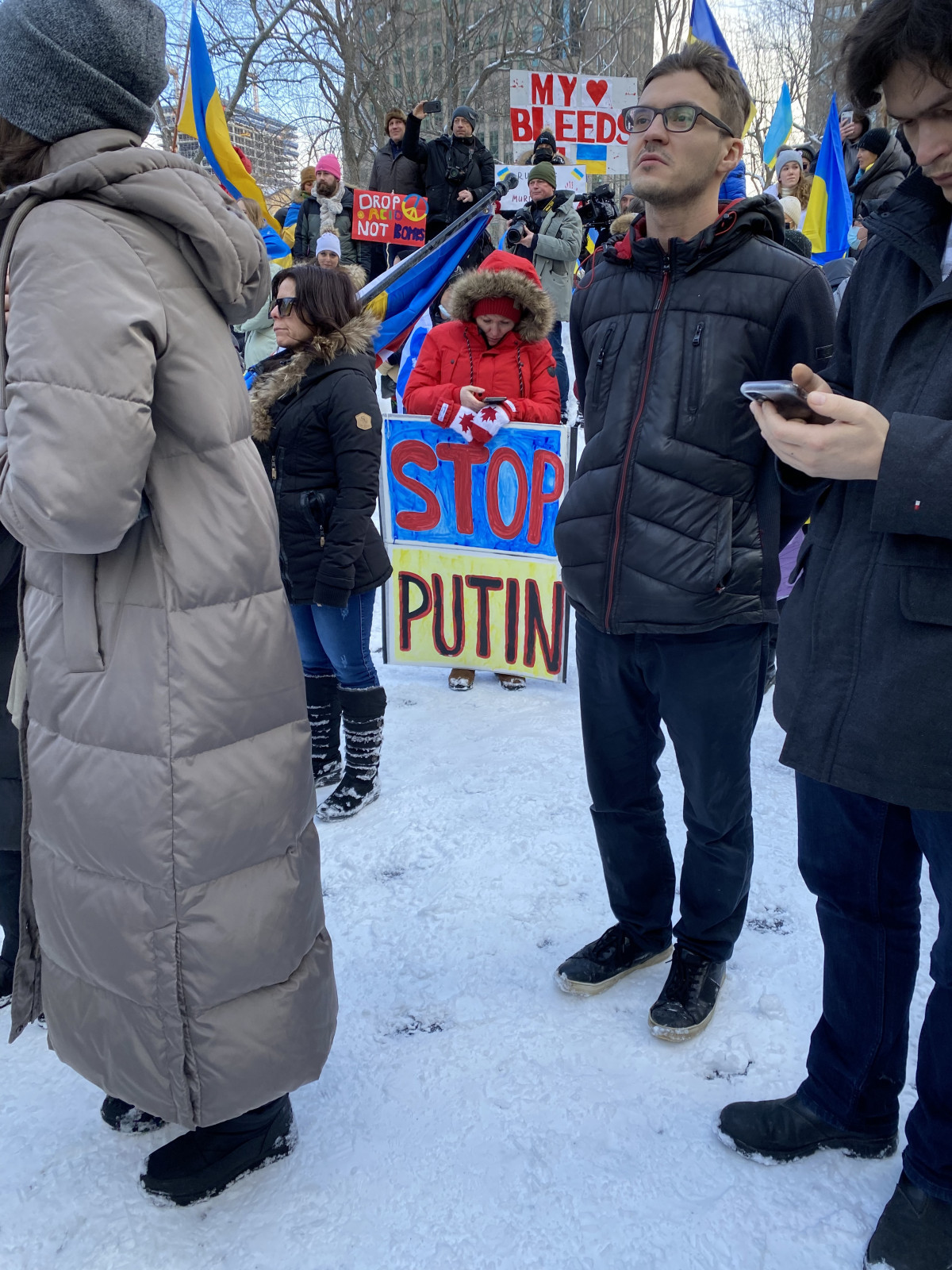
As the President of the Concordia Ukrainian Student Union and a prominent member of the Ukrainian Youth Association–a youth organization that teaches kids about Ukrainian culture, language, and history–Khmil is greatly involved in her community.
She has witnessed how strong this community is. “Ukrainians have been fighting for their independence for centuries,” she explained. No matter the challenges faced, she believes that Ukrainians will always triumph over their oppressors.
“We have always survived and we always stood up for our rights so that is pretty much what is going on today. The biggest difference is that [now] we’re supported by the rest of the world,” she said.
Ukrainian students in Montreal are fearful and impacted by the situation. “When I saw the videos in the news, instantly I felt as if someone had just stabbed me […] my dad started to cry, I started to cry and we just were destroyed by this event,” said Arsenii Pivtorak, a student from Cégep Vieux-Montréal.
Concordia student Markel Reva immigrated from Berdiansk in 2011. He explained how his fears of the war have made it difficult to concentrate in class and perform well on exams and assignments.
“I don’t know what will happen to [my family] in an hour, a day, or in two days. It is very challenging,” he said.
Other Ukrainian students are plagued with survivor’s guilt. “Being here and having this peace and well-being feels kind of wrong,” said McGill political science student, Nika Nikitenko, who left Ukraine nine years ago. She also fears for the safety of her family and friends. “They try to deny the danger. I feel like it’s a coping mechanism,” she said.
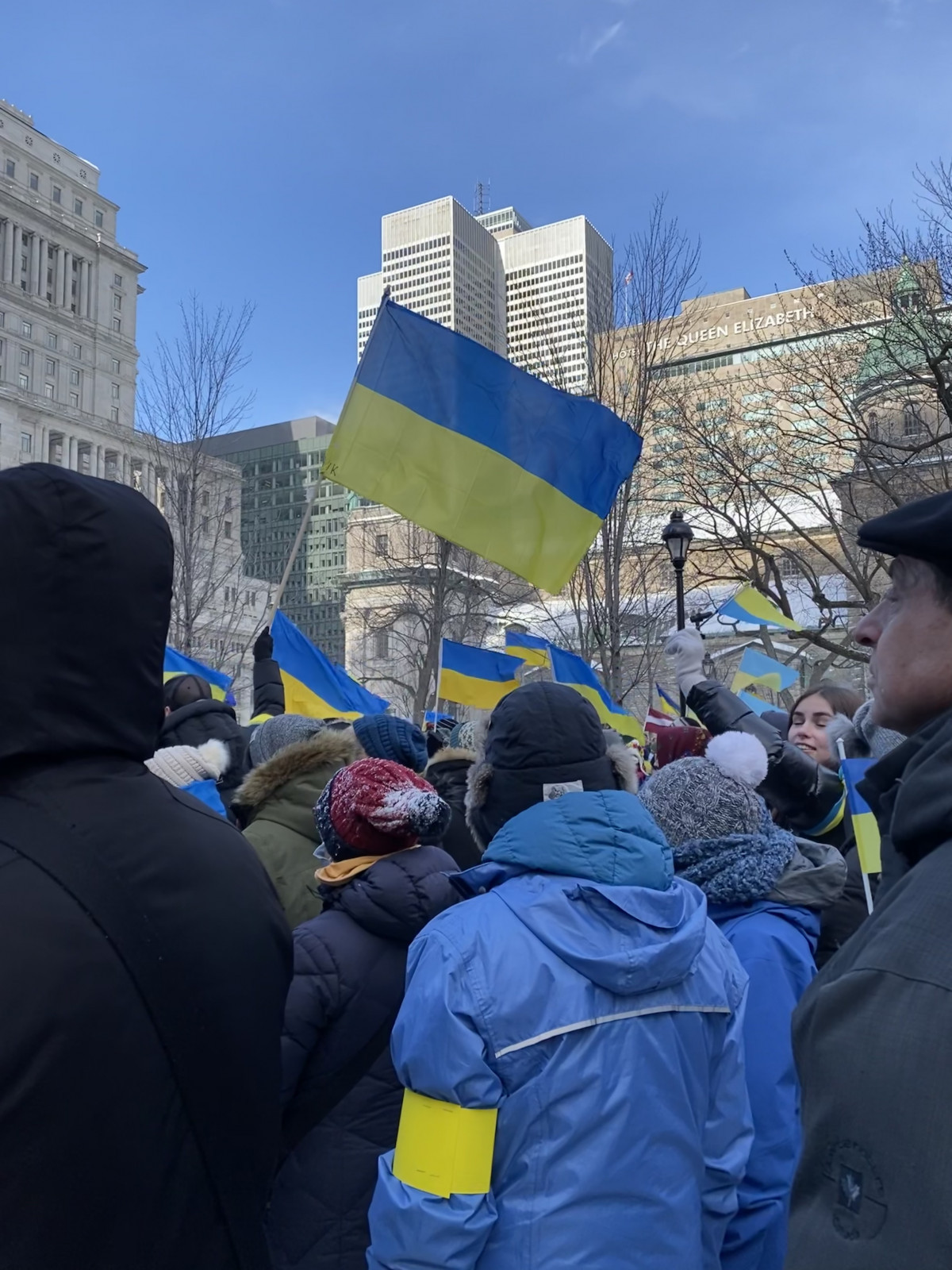
Putin expected the war to end in two or three days, but that has not been the case, said Mikhail Iossel, an English associate professor at Concordia and Soviet fiction writer. “He expected in his delusion that Russia would be greeted as liberators but Ukraine is resisting fiercely,” he explained. As a former underground writer in the USSR, Iossel learnt first-hand of the suppression and cruelty of the Soviet Russian regime (1922-1991).
“There are a lot of mixed opinions so I don’t always know what to believe,” said Khmil. On one hand, Iossel believes that a large portion of the Russian population supports the invasion of Ukraine because they do not have access to reliable information, though this support will not last, he said.
He noted that Russia will suffer severe economic consequences caused by the sanctions being imposed by the West which may lead to high poverty and food shortages.
“As they say in Russia, it is always a tug-of-war between TV and refrigerator. When there is at least something in the fridge, people believe the TV. When there is absolutely nothing to eat, people started turning off the television,” said Iossel.
Disinformation is equally a problem amongst the Russian community in Montreal, according to Pivtorak. Pivtorak immigrated from Western Ukraine with his family in 2014.
He explained that the war has caused a divide amongst his Russian friends. “Some of them really believe the Russian propaganda that it is a peace mission and that there are no civilian impacts […]. They are really in denial and it is really hard to keep dialogue.”
Győrffy Christopher, a Concordia student in community, public affairs and policy studies, formerly lived in Moscow said that the Russian population is uneasy to speak out against the war because they are fearful of the consequences. “These people are brainwashed,” he said.
“When I saw the videos in the news, instantly I felt as if someone had just stabbed me […] my dad started to cry, I started to cry and we just were destroyed by this event.” — Arsenii Pivtorak
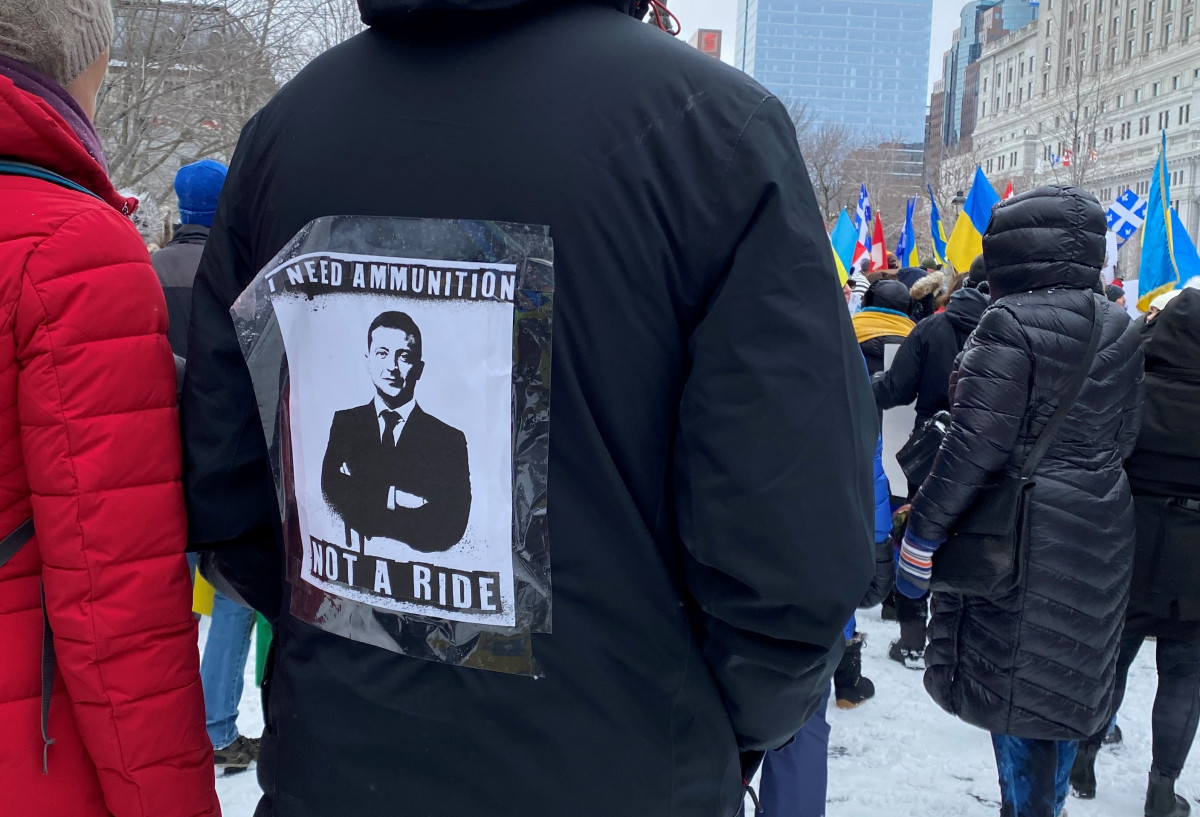
However, Christopher cautions against generalizing all Russians in this way. “My Russian colleagues [...] all disagree with this war. No one will say anything in public because even if they are outside of Russia they are afraid that their family might go to jail,” he said.
He also sympathizes with Russian soldiers, many of whom were forced to enlist because of poor economic prospects. “I believe there are nothing but victims on both sides [...] Most of them, if you look at the age demographics, are between 19 and 25 years old,” he explained.
Since the start of the war, many initiatives have arisen to support Ukrainians around the world. Christopher, along with work colleagues, travels frequently to the Ukraine-Hungary border to support Ukrainian refugees. He collects donations via Just Giving to pay for the gas, fueling buses driven by volunteers transporting refugees as well as other resources, including food and water.
“What I am seeing at the border is incredible courage,” he said. He recounted one story of a woman who brought her children to the border to be transported, but refused to get on herself. When asked why she would not board the bus, she stated that her husband and oldest son were fighting in the war and she would not leave them behind and walked back to Kyiv.
From a local perspective, there are different things that can be done to help. Raising awareness about the war and Ukrainian culture is the first step, according to Khmil.
For Pivtorak, asking the public to stop using colonial language, such as referring to the Ukrainian city as Kyiv and not Kiev, is an important step. He explained that language is a powerful tool in distinguishing Ukrainian culture and history.
Rallies are another proactive solution. “Going to rallies is super supportive for the community here and showing that support to people [even those] on the battlefield,” Khmil said.
The Ukrainian community is also asking for donations to financially support their country. Khmil encouraged individuals to look at Help Save Ukraine – an organization that pools together reliable charities for the public to donate to.
Montrealers may also donate ressources. Reva volunteers for the St-Michael Church where supplies are being collected and are first sent to Poland and later to Ukraine. The church is looking for medical supplies, like cabinet medications, bandages, and baby food, among many things, he said.
Khmil also explained how individuals can check out The Ukrainian Canadian Congress, an organization that works closely with the federal government on how to approach the war. One of their main initiatives is a letter writing campaign in which template emails can be sent to government MPs pressuring them to act more efficiently on the situation.
“The more time we wait, the uglier it gets and the more people die,” she stressed.
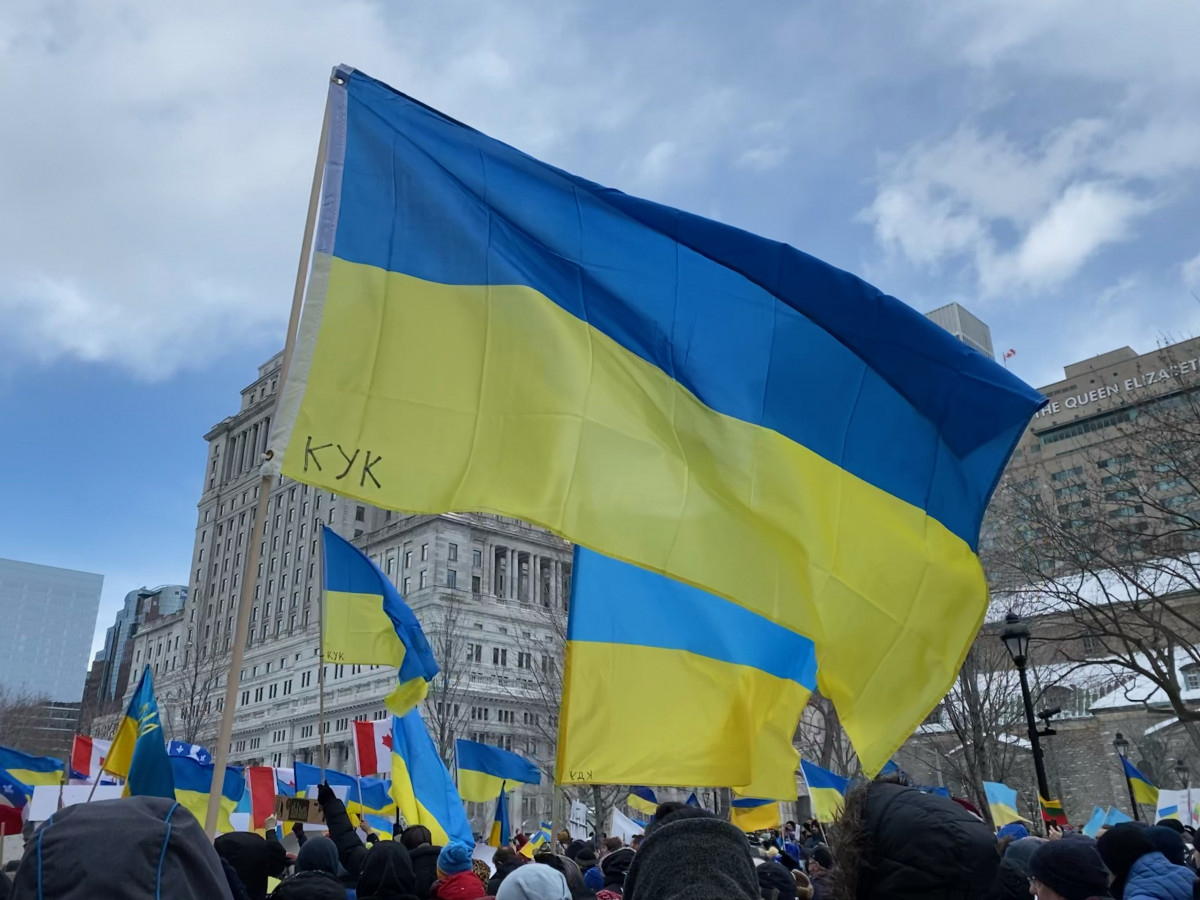
“Don’t panic. I understand that the situation is horrific. I feel the same but worrying about World War Three or nuclear war won’t really help the situation,” said Pivtorak. He emphasized that the goal of disinformation is to destabilize the public and cause fear.
The Concordia Ukrainian Student Union encourages students affected by this situation to reach out to their professors for academic accommodations. Pivtorak’s life, like many Ukrainians, was put on hold after learning about the war.
“It is very difficult to go on and to physically manage my day, to do my homework,” he explained. He was surprised by how understanding his professors and classmates have been.
There is also pressure being put on Concordia to take more action. Reva presented concrete demands to the Dean of Student Life but all of these have been refused. While Reva did not go into detail, he stated Ukrainian students are critical of the administration referral of the situation as a conflict, as opposed to a war or genocide, in the statement given by Concordia’s President, Graham Carr.
“In some ways, it is very frustrating to see how Concordia is handling the situation right now. But on the other side, I would like to say that [the administration] is communicating so it’s not like [Ukrainian students] are just being shut down,” he explained.
In the meantime, Ukrainian students are encouraged to use the resources in place to support the mental health of Ukrainian students in Montreal. There are several active listening services that are free for all students, including Empower Me, Tel-Aide, or Relief, among many. The full list of resources can be found on the Ukrainian Student Union Instagram page.

